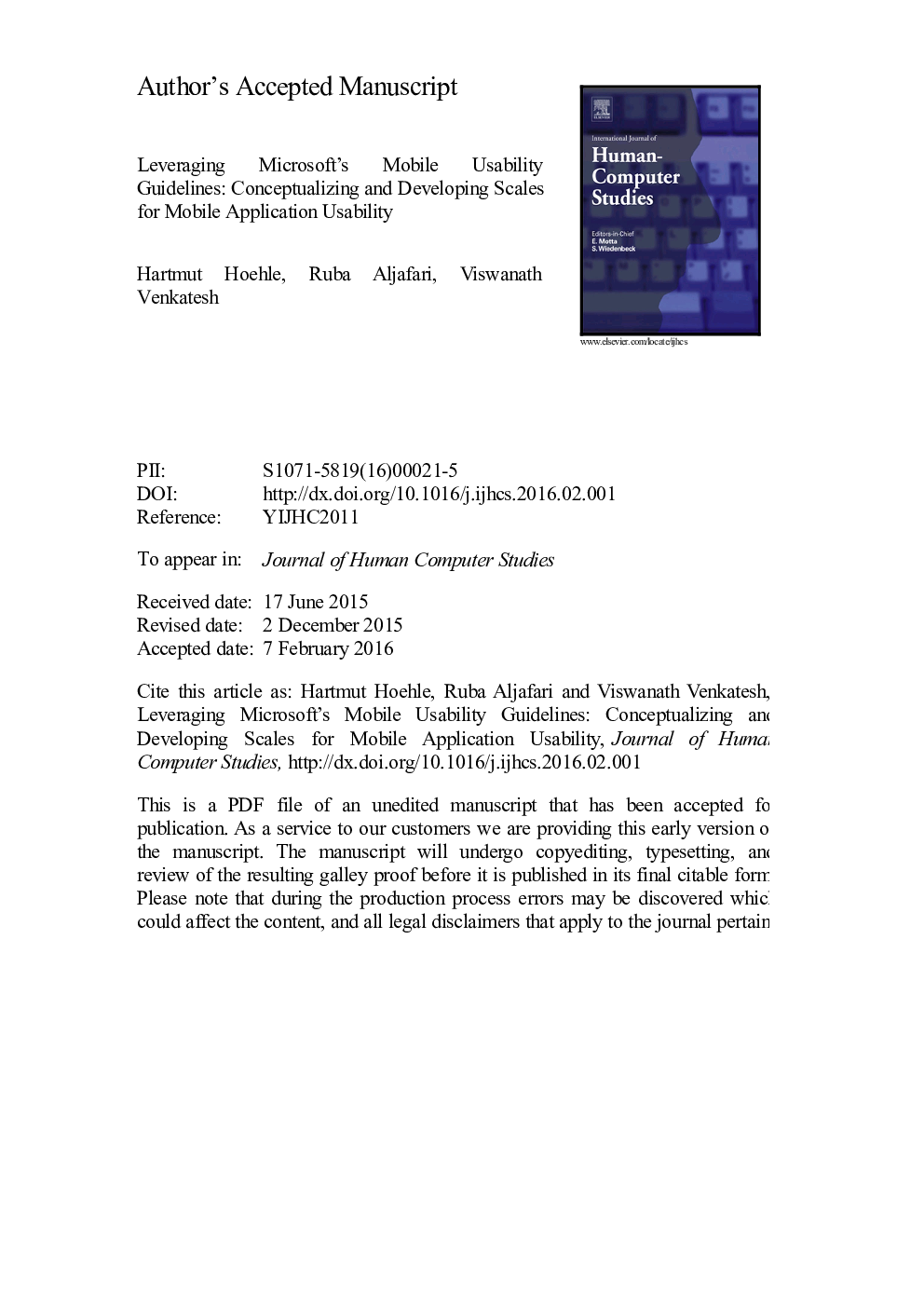| Article ID | Journal | Published Year | Pages | File Type |
|---|---|---|---|---|
| 6861046 | International Journal of Human-Computer Studies | 2016 | 59 Pages |
Abstract
This research conceptualizes mobile application usability and develops and validates an instrument to measure the same. Mobile application usability has attracted widespread attention in the field of human-computer interaction because well-designed applications can enhance user experiences. To conceptualize mobile application usability, we analyzed Microsoft's mobile usability guidelines and defined 10 constructs representing mobile application usability. Next, we conducted a pilot study followed by a quantitative assessment of the content validity of the scales. We then sequentially applied exploratory factor analysis and confirmatory factor analysis to two samples (n=404; n=501) consisting of German consumers using mobile social media applications on their smartphones. To evaluate the confirmatory factor model, we followed a step-by-step process assessing unidimensionality, discriminant validity and reliability. To assess the nomological validity of our instrument, we examined the impact of mobile application usability on two outcomes: continued intention to use and brand loyalty. The results confirmed that mobile application usability was a good predictor of both outcomes. The constructs and scales associated with mobile application usability validated in this paper can be used to guide future research in human-computer interaction and aid in the effective design of mobile applications.
Keywords
Related Topics
Physical Sciences and Engineering
Computer Science
Artificial Intelligence
Authors
Hartmut Hoehle, Ruba Aljafari, Viswanath Venkatesh,
